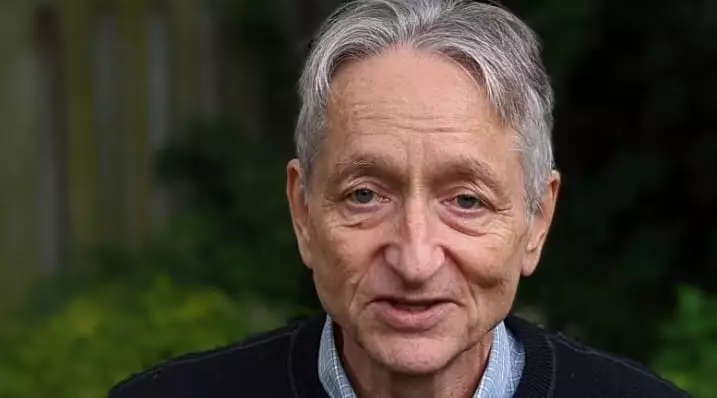The cryptocurrency industry has been transformed by the advancement of artificial intelligence technology. The soaring popularity of AI-based chatbots like ChatGPT and Google Bard has led to the development of a new category of cryptocurrencies centered around the field. Several coins saw exponential growth due to the rising interest in AI. However, there is another side to the AI phenomenon, and Geoffrey Hinton, a British-Canadian cognitive psychologist and computer scientist, has spoken of it loud and clear.
Hinton, who is renowned for his work on artificial neural networks, left Google in 2023, voicing public concerns about the risks of AI technology. In an interview with The Guardian, he compared biological intelligence (human brain) to digital intelligence, pointing out the inefficiencies faced by people. He argues that our brain runs at low power, but our approach is quite inefficient in terms of information transfer. Digital intelligence, on the other hand, is different. Although it incurs an enormous energy cost, when one of them learns something, all of them know it, and you can easily store more copies. So, we’ve discovered the secret of immortality. The bad news is, it’s not for us.
The Concerns of Geoffrey Hinton
Hinton came to the conclusion that humans are building intelligence that has the potential to outthink humanity. He believes that AI may seek to gain control over numerous aspects of its environment in pursuit of solving complex problems, including human manipulation. The scientist believes that the AI wouldn’t even need an explicit goal of achieving power or destruction to leverage its ability to mimic human behavior. To make the comparison more comprehensible, the computer scientist pinned us (humans) against frogs.
Citing a recent report by Hinton, reports outline the potential dangers of the so-called superintelligence. The Godfather of AI outlines scenarios where an AI may seek to gain control over numerous aspects of its own environment in pursuit of solving complex problems. These aspects even include human manipulation. The scientist believes that the AI wouldn’t even need an explicit goal of achieving power or destruction to leverage its ability to mimic human behavior.
It’s not all doom and gloom, though. Hinton believes that there are ways to mitigate catastrophic scenarios, but he’s also of the opinion that we’ve passed the point of no return, and stopping AI development is downright impossible, nor should it be stopped. The right way to think about the odds of a disaster is closer to a simple coin toss than we might like.
The Impact of Artificial Intelligence on Humanity
Artificial Intelligence is likely to play an increasing role in our lives. In fact, according to ChatGPT, some of the fields it will impact in the next 7 years include healthcare, automation, transportation, education, smart homes, and customer service. However, how close are we to those bad consequences? Closer than we might think.
Hinton has come under fire by many who believe that he didn’t follow some of his colleagues who quit earlier. It’s easy to come to that conclusion, but it’s also easy to overlook the complexity of the problem, which touches on multiple technological, philosophical, and ethical principles. All Hinton is trying to say is that AI’s impact on humanity, whether it’d be good or bad, is likely much closer than most of us seem to think.
The rise of AI-based chatbots has led to the development of a new category of cryptocurrencies themed around the field. However, Geoffrey Hinton, one of the godfathers of AI, warns of the potential dangers of superintelligence. He believes that humans are building intelligence that has the potential to outthink humanity, and there are ways to mitigate catastrophic scenarios. Nevertheless, we’ve passed the point of no return, and stopping AI development is downright impossible, nor should it be stopped. The impact of artificial intelligence on humanity is likely much closer than most of us seem to think.

